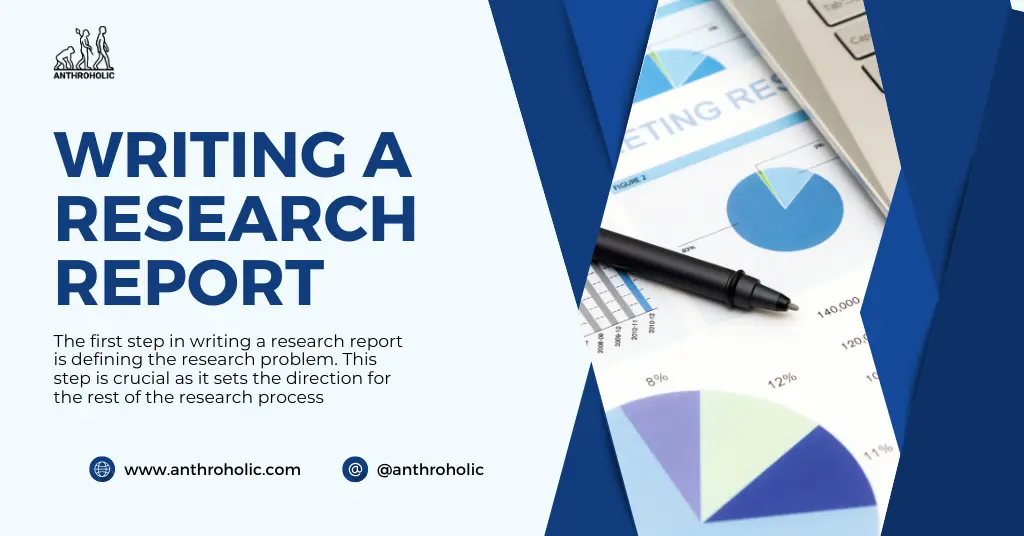AI Answer Evaluation Platform Live Now. Try Free Answer Evaluation Now
Writing a Research Report
Research is an integral part of anthropology, serving as a means of accumulating and enriching knowledge about human societies [1]. It is essential for anthropologists to be proficient in research report writing, as the quality of a report can significantly impact the value of the research conducted [2].

Defining the Research Problem
The first step in writing a research report is defining the research problem. This step is crucial as it sets the direction for the rest of the research process [3]. The research problem should be clearly stated, specific, and manageable within the available resources and time frame.
Table 1: Defining the Research Problem
| Step | Description |
|---|---|
| Identifying a General Topic | Exploring broad areas of interest |
| Narrowing Down the Topic | Delving into specifics |
| Formulating the Research Problem | Crafting a clear, manageable question |
Conducting a Literature Review
Once the research problem is defined, a comprehensive review of existing literature on the topic is carried out. The literature review provides an overview of current knowledge, helps identify gaps, and presents opportunities for the research to contribute to the anthropological discourse [4].
Methodology
The methodology is the backbone of the research report as it dictates how data will be collected, analyzed, and interpreted. Methodological choices in anthropology commonly include participant observation, interviews, focus groups, and the use of archival resources.
- Participant Observation: Participant observation is a traditional and widely-used method in anthropological research. It involves the researcher immersing themselves in the daily life of the group being studied, providing a nuanced and intimate understanding of the culture.
- Interviews and Focus Groups: Interviews and focus groups allow for the collection of rich, qualitative data. They provide insights into participants’ thoughts, feelings, and motivations, which may not be readily apparent from observation alone.
- Use of Archival Resources: Archival resources, such as historical documents and artifacts, can offer insights into the historical context of the group being studied.
Data Analysis
Data analysis in anthropology is largely qualitative, focused on interpreting the meanings, patterns, and themes in the data collected. Common techniques include thematic analysis, discourse analysis, and grounded theory.
Writing the Research Report
The final step in the research process is writing the research report. The report should be structured clearly and logically, presenting a coherent argument supported by evidence.
Table 2: Structure of a Research Report
| Section | Content |
|---|---|
| Introduction | Introduces the research problem and its significance |
| Literature Review | Summarizes existing knowledge on the topic |
| Methodology | Explains how data was collected and analyzed |
| Findings | Presents the results of the research |
| Discussion | Interprets the findings in the context of the research problem |
| Conclusion | Summarizes the key findings and implications of the research |
Conclusion
In conclusion, writing an anthropological research report involves a meticulous process of defining the research problem, conducting a literature review, selecting and implementing appropriate methodologies, analyzing data, and crafting a comprehensive report. The quality of the report can greatly enhance the value and impact of the research, making it a critical skill for anthropologists.
References
[1] Bernard, H.R. (2011). Research Methods in Anthropology: Qualitative and Quantitative Approaches.
[2] Ember, C.R., & Ember, M. (2009). Anthropology. https://doi.org/10.1177/1069397110383661
[3] Punch, K.F. (2006). Developing Effective Research Proposals.
[4] Hart, C. (1998). Doing a Literature Review.




